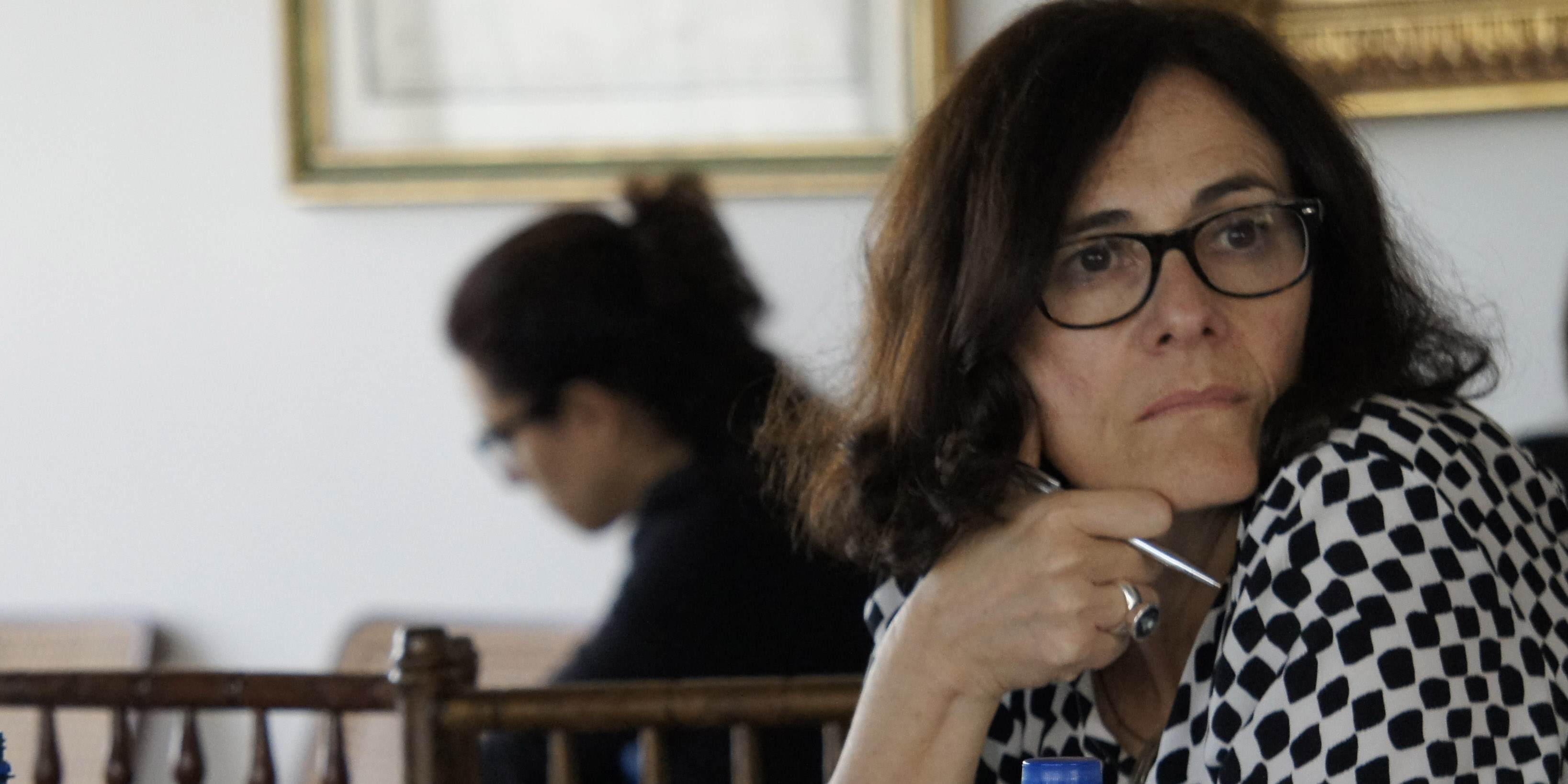
The Bridging Theory and Practice meeting held on 12 September, 2017, at the London School of Economics brought together representatives from the private sector, donor organizations, Non-Governmental Organisations and the academia to share their experiences, deliberate on policies and generate new insights on the theme of the Media and Social Norms. The meeting was hosted by the Department of Psychological and Behavioural Science and the participants included the Bill and Melinda Gates Foundation, the Child Investment Fund Foundation, LSE academics from Psychological and Behavioural Science and Media and Communications, London School of Hygiene and Tropical Medicine, Africa’s Voices Foundation, Caribou Digital and Simplicity. The meeting discussed different and changing approaches to understanding social impact as well as more specific new methods of implementation, measurement and evaluation.
2 donors, 3 academics, 3 implementors, 2 private sector partners walked into a room……
Sounds like a normal day at the pub perhaps, but this was a meeting at the Department of Psychological and Behavioural Science at LSE which crossed boundaries and created a space for some unique and impactful collaboration.
How?
This unusual, intentionally small, high-level gathering was brought together as part of an ongoing series ‘Bridging Theory and Practice’ (BTP) whose intentions are twofold. Firstly to start at the point of the knotty social issues rather than the theory or discipline, and secondly, to gather people who are trying, working, researching, designing and measuring in this space and bring them into a learning conversation across sectors and disciplines.
Why is this important now?
Crossing these boundaries in this series was first explored back in 2010, between BBC Media Action and the LSE. Back then academic incentive to participate was understandably significantly lower in the brutal environment of the time. Today, however, the incentives on both sides have changed. Practice needs to be learning from and engaging with academic evidence of change and impact. Publish or perish also seems to have moved on. The Research Excellence Framework (REF) today has now got a significant proportion dedicated to impact. Most academics and administrators I have spoken to are not exactly sure around the dimensions of impact and certainly unsure about its measurement, but the waters have clearly changed direction over the past few years.
What happened?
The agenda was on ‘Media and Social Norms – sharing thoughts on how the media works to shift social norms. The group included people from the Bill and Melinda Gates Foundation, the Child Investment Fund Foundation, the LSE – Department of Psychological and Behavioural Science and Department of Media and Communications – the London School of Hygiene and Tropical Medicine, the Africa Voices Foundation, Well Told Story (Kenya), Caribou Digital, Frog Design and Simplicity. There were 9 people in the room and 2 on Skype from Kenya and Delhi.
What impact was created?
The meeting was at lunchtime, a 2 hour conversation followed by an afternoon workshop. As with many meetings, connections were made, conversations were had, perspectives were shared, cards were exchanged, but does this count as impact? In a world of measure-ables and packed diaries is this good use of busy people’s time?
Here are some of my observations on the impacts in the room:
The impact of community – Siddhartha Swarup from the Gates Foundation from Delhi was the first speaker laying out some of the struggles donors face after having invested over 250 million dollars in one of the largest investments in Bihar, India over the last 7 years. Of this investment, around 70 million dollars have been invested in the Behaviour Change programmes (the space where media interventions are critical). 3 issues were discussed in his talk – (1)the fluidity of norms in change i.e. are there low hanging fruit when shifting norms (2)the notion of individual choice in shifting norms (3) the tipping point in shifting norms and the validity of such a notion.
There was not a single voice in the room who did not respond or resonate with these challenges laid out – questioning investment strategies, questioning theoretical underpinnings, suggesting literatures, alternative experiences providing data – and we were off to a rich conversation as equal members of the community of practice.
The impact of collective challenges and voice
Well Told Story from Kenya took us through their work developing Shujaaz, a mission-driven media platform targeting youth aged 15-24 in Kenya and Tanzania.. Over Skype the head of knowledge and learning team, Dr. Anastasia Mirzoyants, shared the challenges of accessing this age group with normative and behaviour change campaigns. Anastasia talked about the three break-throughs that helped Shujaaz to be more effective in stimulating and sustaining normative change: (a) the discovery of the adoption-rejection space in which rejection is an (mis) informed decision to not adopt new behaviours often influenced by social norms; (2) the segmentation of audience with segments set along the adoption-rejection space; and (3) targeted segment-needs-informed use of media channels and content to help each segment move towards adoption on their terms..
Dr Claudia Abreu Lopes, Senior Advisor at Africa voices shared insights from a project called the Dreams Initiative, in Kenya, that aims to understand social norms around girls dropping out from school and missing lessons during their period. Through this project the use of big data to look at norms was brought into the conversation. She is furthering her work investigating social norms using big data in a project she and Dr Bailur from Caribou Digital, are now doing with UN women using Twitter data.
Over the lunchbreak the connections and shared concerns continued and issues like the deep challenges of measurement raised by Erin MacCarthy were discussed, from the Child Investment Fund Foundation and the essential nature of the fluidity of norms. The collaborative conversations and connections had begun to emerge.
The impact of shared ideas and a few new ideas
Craig Cisero a Senior Business Strategist from frog design brought private sector models to the table and the process of human centered design thinking used in producing a fire service response in the Kenya. He shared innovations that emerged from their design process, which resulted in a market driven service provision which is financially self -sustaining. This work was with the American Red Cross and being piloted in South Africa and Kenya. Craig spoke about the key insights of derived from understanding the social norms and the informal power brokers in the local communities.
The ethical dimension of shifting social norms stimulated by Dr Bailur, Research Director at Caribou Digital after she talked about the complexities of the Adhaar Card implementation in India based on large scale research they have conducted with the Omidiyaar Foundation. Her insights highlighted issues on multi identities, the static nature of digital identities, the issue of revelation of identities in public spaces for fear of the judgements and recriminations that bring due to the societal norms. She also raised a very interesting discussion around the need for the reflexivity of the researchers and implementing organisations. Dr Ilka Gliebs, shared concerns about the normative nature on social norms that implementors can have i.e. the notion of the right norm’ and Dr Jennifer Sheehey-Skeffington spoke about the functional aspects of norms i.e. norms have a function in society, often that may be keeping people safe or even giving them security within a community.
The impact of collaboration
At the closing session, Dr Ben Cislaghi, Assistant Professor in Social Norms at LSHTM, mapped the many groups working on social norms and social impact around the world. His sense was that ‘the contribution of this group would be a collaboration focused on the role of the media within the social norms conversations. While there are individual projects and voices such a collective voice is currently missing from the bigger conversation.’
Additionally, this collective voice would be beneficial to all our organisations to learn, secure collaboration for ideas and funding purposes and have a voice in the larger social norm collaborations that we are aware of. I offered this meeting to be the first in a series of three BTP meetings on this topic over the course of this year – the next one in spring 2018. We are going to meet again.
What next?
In the current academic climate where the holy grail of impact is embodied in policy and patents, and the pathways are identified through incubators and accelerators, I would suggest this type of collaborative is the first important step.
Creating the safe space where the community of difference (incommensurable paradigms – as I was once told) can translate their thinking and processes to each other is critical for disruption and creative endeavor. I would suggest that collaborators are the first critical step in the chain to impact. Getting collaborators right significantly increases the chances of the success of impact of the incubators and the accelerators. This is impact.
We now have the Media and Social Norms Collaborator! We will keep you updated on what emerges – a consultancy, a project, a funding proposal, an incubator perhaps? If you are working in this space, or interested in the short report of this meeting please contact kavita@simplicityconsulting.co.uk
About the Author
Kavita Abraham-Dowsing is a specialist in communications, culture transformation and change management. She is the founder and CEO of Simplicity. She has worked at the BBC, AT Kearney, the London School of Economics, London Business School, and King College. For the last 8 years Kavita was Director of Research and Learning at BBC Media Action leading a team of 100 researchers working in over 28 countries in Africa, Asia and the Middle East understanding and evidencing social impact. Kavita was a member of the senior management team at BBC Media Action and involved in winning and managing projects as large as 90 million pounds. In 2014, her team was awarded the President’s Gold Medal by the Market Research Society for ‘Extraordinary contributions to research’. Kavita has worked with thought leaders like the Gates Foundation, the Child Investment Fund Foundation and the Department for International Development. Currently also a Visiting Fellow at the London School of Economics, Kavita convenes experts from the field, academia and the private sector in a ‘Bridging Theory and Practice’ exchange to share learning on challenging issues in social change and develop a cross-sectoral agenda to address them. Kavita started her career as a consultant with AT Kearney involved in large-scale change design and implementation in automotive, telecommunications and public sector organizations. She has worked with Marks & Spencer’s, Orange, Inland Revenue and the Department for Work and Pensions. Kavita’s doctoral thesis is on Cultures of Communication. Kavita has extensive experience working in both public and private sector change, has lived in the UK, United Arab Emirates, India, Thailand, Indonesia and Zimbabwe.





